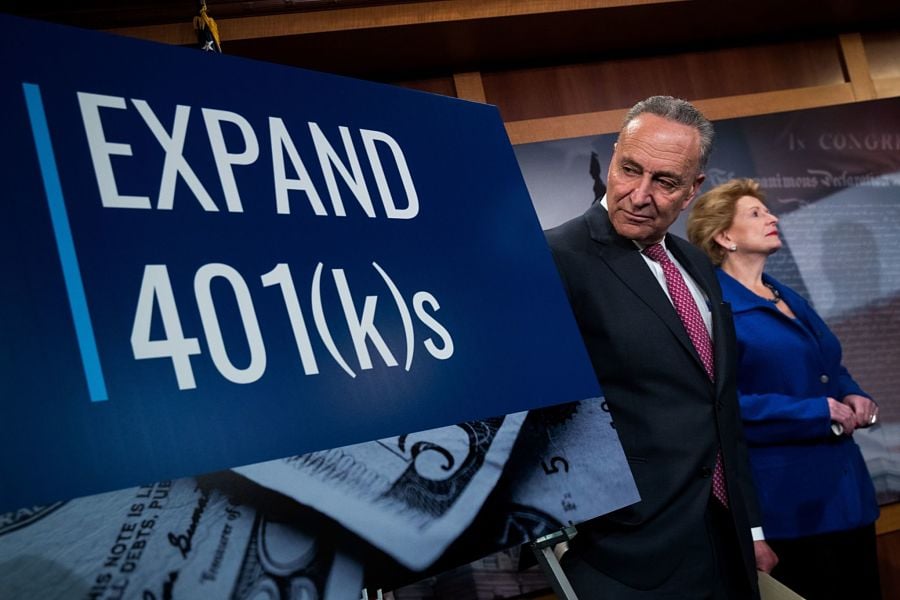

The SECURE Act is now the law. And on Jan. 1, 2021, the provision authorizing open multiple employer plans, also known as pooled employer plans, or PEPs, will be effective.
Those PEPs will create both opportunities and threats for advisers.
Before getting into that, though, let’s look at the basic requirements for PEPs.
First, what is an open MEP — called a PEP in the new law? It’s a retirement plan — most likely a 401(k) plan — that can be adopted by unrelated employers.
Why would a company sign onto a PEP, rather than sponsoring its own plan? Three reasons are commonly given. First, a lot of the fiduciary responsibility can be transferred to the pooled plan provider, or PPP, which is the sponsor and primary fiduciary of the PEP.
Second, much of the administrative work can be transferred to the PPP, such as approving loans, hardship withdrawals and distributions. That includes the transfer of the responsibility for overseeing the compliance work commonly done by a third-party administrator. Third, if enough employers join the plan and the plan accumulates a significant amount of assets, the PEP can obtain low-priced share classes of mutual funds, thereby reducing costs.
With that in mind, how does a PEP work? It starts with a pooled plan provider. The PPP is the primary fiduciary of the PEP and serves as its named fiduciary and administrative fiduciary (sometimes called a 3(16) administrator). The plan assets must be held by a bank or trust company as the trustee, with responsibility for safeguarding the assets and for collecting deferrals and contributions.
As a practical matter, the PPP will probably hire an investment adviser as a 3(38) investment manager to choose and monitor the investments on the platform for participant direction. As a result, the responsibilities of the named fiduciary, the administrative fiduciary, the trustee and the investment manager will be transferred from the employer to the PPP and other fiduciaries.
The only remaining jobs for employer are to prudently select the PPP and distribute plan materials to the participants. Of course, employers must withhold deferrals from employees’ paychecks and forward them to the plan on a timely basis.
Because of the transfer of most of the fiduciary responsibility to the PPP, as well as the transfer of much of the administrative work, PEPs will be particularly attractive to employers who want a simple “plug-and-play” 401(k) plan. PEPs could also be appealing to employers in states that require companies that do not sponsor a plan to adopt an IRA-based deferral program for their employees. A PEP will be almost as easy to set up and administer and has higher deferral limits for owners and key employees.
Also, for advisers who do little, if any, work with retirement plans, PEPs may be an easy-to-use solution for their plan sponsor clients.
Well, then, what are the threats and opportunities?
In all likelihood, PEPs will be used by employers that are setting up their first plans and by employers that switch from individual plans to PEPs. There will be winners and losers in that process. The advisers for the individual plans (and for new plans that would be individual plans but for the PEP) will lose work. But the advisers for the PEPs will gain work.
Because of those threats, some advisory firms — probably those with significant retirement plan practices — will establish PEPs for their own clients (and as a convenient solution for their smaller plan clients).
Other advisory firms will work with PEP sponsors to provide the 3(38) investment management services for the investments on the PEP platform.
Advisers who do not set up their own PEPs will still have a role, but it will be more limited (and, therefore, may entail lower fees) than for single-employer 401(k) plans where the adviser helps select and monitor the investments in the plan.
For example, the advisers will still help employers evaluate the pooled plans and their providers. In addition, the adviser could assist the plan sponsor in selecting the design features for the plan and evaluating its operations. In addition, advisers could explain the plan and its investments and services to the employees. In that regard, advisers should understand the PEP’s provisions for compensating advisers for their services to the employer and its employees.
There may be other opportunities and threats, but it’s early in the game. Advisers should closely monitor developments in this area and develop a strategy for their retirement plan practices in light of the changes.
Fred Reish is a partner at the law firm Drinker Biddle & Reath.

Eliseo Prisno, a former Merrill advisor, allegedly collected unapproved fees from Filipino clients by secretly accessing their accounts at two separate brokerages.

The Harford, Connecticut-based RIA is expanding into a new market in the mid-Atlantic region while crossing another billion-dollar milestone.

The Wall Street giant's global wealth head says affluent clients are shifting away from America amid growing fallout from President Donald Trump's hardline politics.

Chief economists, advisors, and chief investment officers share their reactions to the June US employment report.

"This shouldn’t be hard to ban, but neither party will do it. So offensive to the people they serve," RIA titan Peter Mallouk said in a post that referenced Nancy Pelosi's reported stock gains.
Orion's Tom Wilson on delivering coordinated, high-touch service in a world where returns alone no longer set you apart.
Barely a decade old, registered index-linked annuities have quickly surged in popularity, thanks to their unique blend of protection and growth potential—an appealing option for investors looking to chart a steadier course through today's choppy market waters, says Myles Lambert, Brighthouse Financial.
